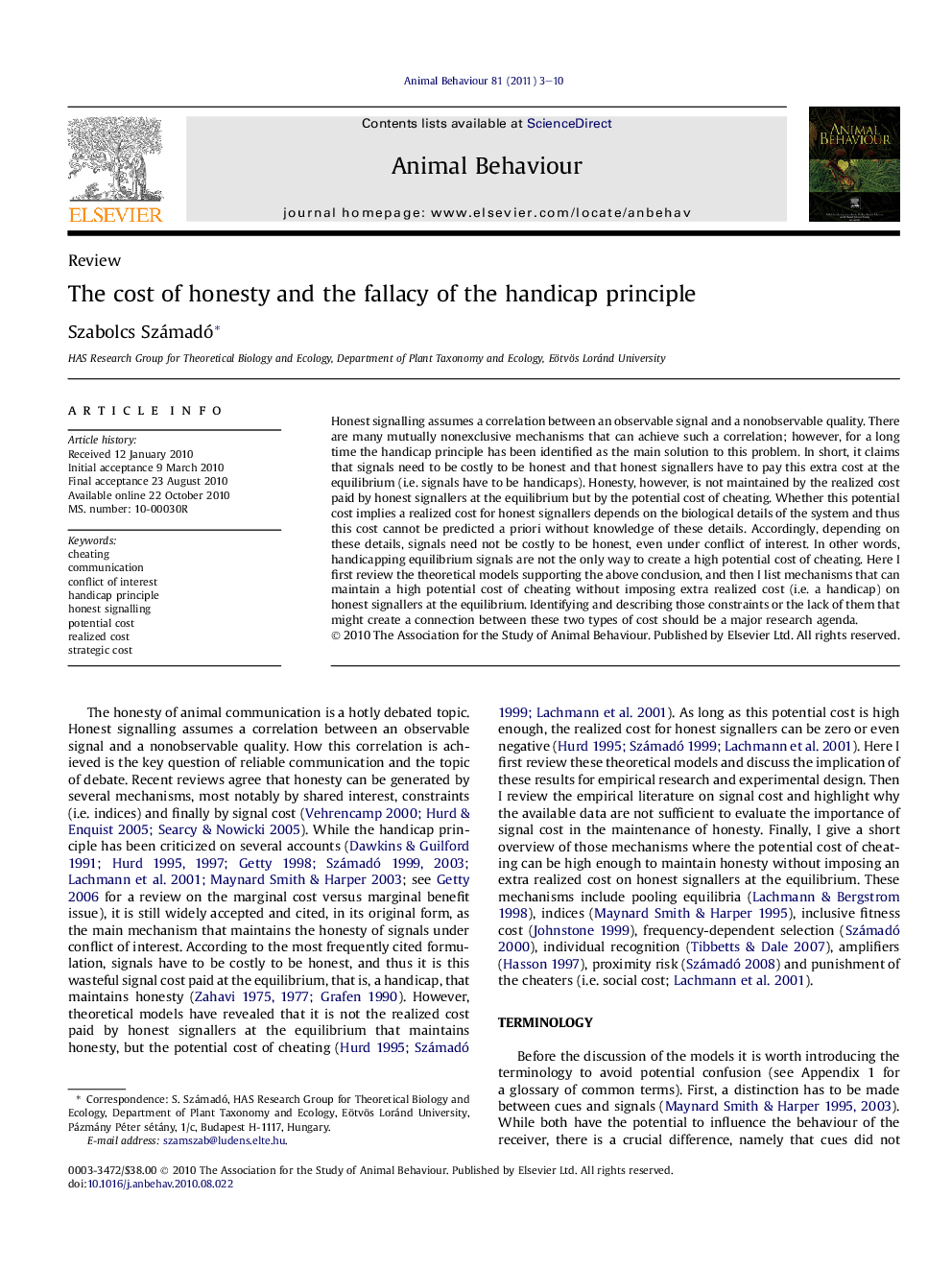| کد مقاله | کد نشریه | سال انتشار | مقاله انگلیسی | نسخه تمام متن |
|---|---|---|---|---|
| 10971024 | 1104291 | 2011 | 8 صفحه PDF | دانلود رایگان |
عنوان انگلیسی مقاله ISI
The cost of honesty and the fallacy of the handicap principle
دانلود مقاله + سفارش ترجمه
دانلود مقاله ISI انگلیسی
رایگان برای ایرانیان
کلمات کلیدی
موضوعات مرتبط
علوم زیستی و بیوفناوری
علوم کشاورزی و بیولوژیک
علوم دامی و جانورشناسی
پیش نمایش صفحه اول مقاله

چکیده انگلیسی
Honest signalling assumes a correlation between an observable signal and a nonobservable quality. There are many mutually nonexclusive mechanisms that can achieve such a correlation; however, for a long time the handicap principle has been identified as the main solution to this problem. In short, it claims that signals need to be costly to be honest and that honest signallers have to pay this extra cost at the equilibrium (i.e. signals have to be handicaps). Honesty, however, is not maintained by the realized cost paid by honest signallers at the equilibrium but by the potential cost of cheating. Whether this potential cost implies a realized cost for honest signallers depends on the biological details of the system and thus this cost cannot be predicted a priori without knowledge of these details. Accordingly, depending on these details, signals need not be costly to be honest, even under conflict of interest. In other words, handicapping equilibrium signals are not the only way to create a high potential cost of cheating. Here I first review the theoretical models supporting the above conclusion, and then I list mechanisms that can maintain a high potential cost of cheating without imposing extra realized cost (i.e. a handicap) on honest signallers at the equilibrium. Identifying and describing those constraints or the lack of them that might create a connection between these two types of cost should be a major research agenda.
ناشر
Database: Elsevier - ScienceDirect (ساینس دایرکت)
Journal: Animal Behaviour - Volume 81, Issue 1, January 2011, Pages 3-10
Journal: Animal Behaviour - Volume 81, Issue 1, January 2011, Pages 3-10
نویسندگان
Szabolcs Számadó,